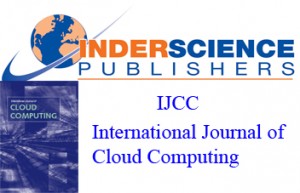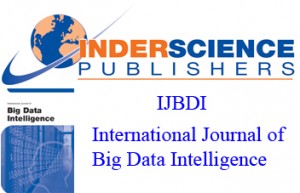 Pr. Mohammed El Mohajir(Biography)
Pr. Mohammed El Mohajir(Biography)
Talk about :
- Towards a datawarehouse modeling framework for Big Data and Business Analytics:
Moroccan e-Government case study
Our contemporary society is becoming more data-centric than ever, and many aspects of our daily life feed the big data trends. The ever-evolving and continuously progressing digital era brings with it the possibility of keeping a digital record of our daily activities, relating to the products we buy the food we eat and to the opinions, sentiments and emotions we express. Furthermore, global digital and peer-to-peer communication technologies make possible the tracking of our movements when going around with our smart phones or with the navigators in our cars. We also leave digital traces of our relationships with our friends, colleagues, and co-workers. All these huge amounts of information that we continuously generate on the web or on the repositories of the many organizations is becoming of a real social and industrial interest for a wide range of researchers and professionals.
The challenges we are therefore facing today is how to transform these huge amounts of operational and transactional data into useful information and knowledge from which different organizations and businesses can benefit.
The main emphasis of our research effort is towards building a Business Intelligence and Big Data Analytics paradigm, as a set of selected algorithms, methodologies, processes, architectures, systems and technologies that transform raw data into meaningful and useful information and knowledge. Various interdisciplinary oriented BI approaches may provide organizations with the ability to use their data to improve the quality of their business services, increase financial efficiency and operational effectiveness, conduct innovative research and satisfy regulatory requirements. Applications of appropriate BI and Big Data Analytics implementation methodologies together with outcomes related to collaborative and interdisciplinary approaches are inevitable when applying BI and Analytical approaches to large and complex organization systems. For many years, such interdisciplinary approaches were used in analyzing big data gathered from not only business sectors, but also public, non-profit, and government sectors.
In this context, datawarehousing is still playing a central role for providing an efficient user centric platform for most of the analytical processing needs. However, the classical methodology for modelling the datawarehouse is no longer adapted to the new business analytics concept. The lack of a global approach adapted to the new contextual requirements causes that many DW projects fail to meet their goals in satisfying modern analyst’ needs and expectations. This work is the first step towards the development of a framework that encompass a unified approach that allows us to automate the design information for the future datawarehouse multidimensional model on the basis of both goals models and business processes diagrams. We selected the Morocco E-governent sector for our business analytics case study to demonstrate the viability of our approach.



Follow Us!